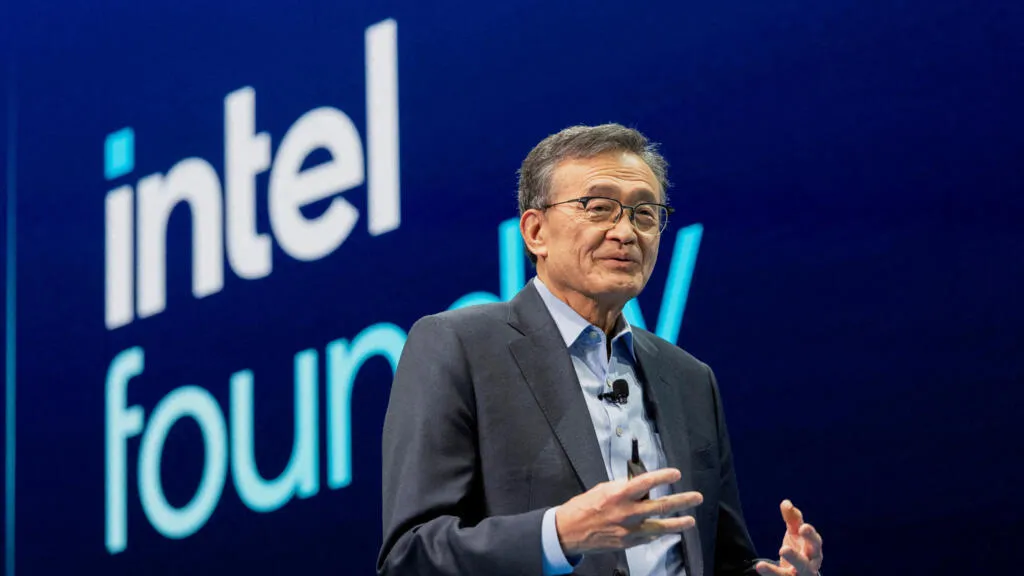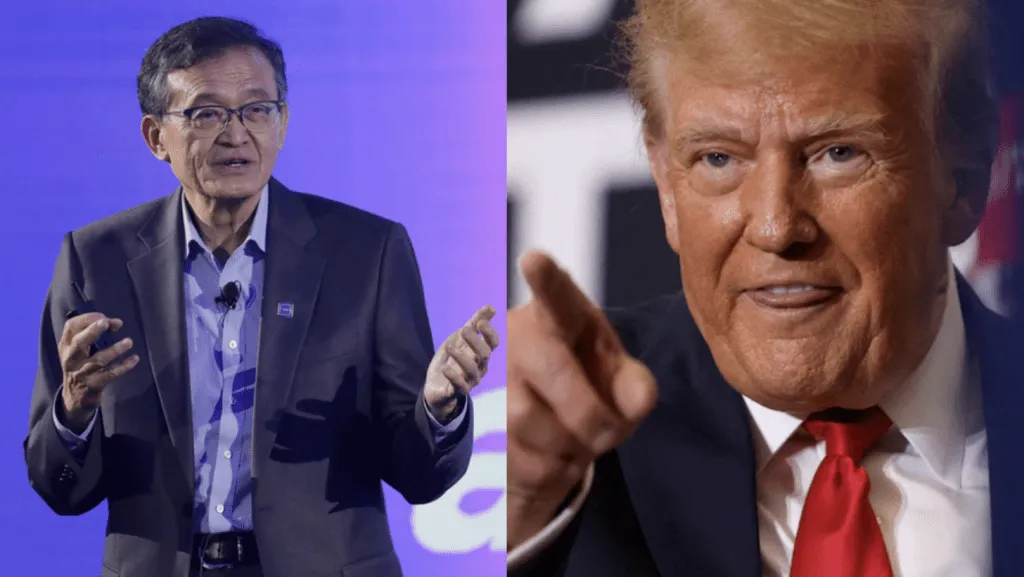 BrokerHiveX
BrokerHiveX BrokerHiveX
BrokerHiveX BrokerHiveX
BrokerHiveXSummary:US President Trump publicly called for the resignation of Intel CEO Lip-Mo Chen, citing "highly conflicting" historical investments with Chinese companies. This triggered a sharp market reaction and divided investors. Intel's stock price fell 3% that day. The incident reflects the unprecedented political pressure facing corporate leaders amid the US-China tech war. #Trump #IntelCEO #China-USChipsWar #CorporateIntervention #TechRegulation

Intel CEO Lip-Bu Tan
On August 8, 2025, US President Trump posted on his "Truth Social" platform, demanding the immediate resignation of Intel CEO Lip-Mo Chen, calling him "deeply conflicted" and questioning his historical investments in Chinese companies. This rare direct intervention by Trump in a corporate personnel matter sent shockwaves through the market and the business community. According to Reuters , the announcement caused Intel (INTC.O) stock to close down 3% that day, making it one of the worst-performing stocks in the chip sector.
According to an exclusive Reuters investigation in April , Lip-Wu Chen had invested over $200 million in hundreds of Chinese advanced manufacturing companies, including those with ties to the Chinese military, through his venture capital fund. This information was again cited by Republican Senator Cotton, who questioned it in a letter to Intel's board of directors, sparking a new round of political debate. Trump claimed that "there is no other solution to this problem" and that Chen's resignation was necessary to protect national interests.
The president's public call for executive resignations has divided the investment community. Phil Blancato, CEO of Ladenburg Thalmann Asset Management, warned that the move could "set an unfortunate precedent" for political interference in private company personnel management. Meanwhile, David Wagner, a fund manager at Aptus Capital and an Intel shareholder, said it was part of Trump's "returning businesses to the United States" agenda and demonstrated his strong stance on "Made in America."

As one of the biggest beneficiaries of the Chips and Science Act, Intel received $8 billion in government subsidies and was tasked with promoting domestic chip manufacturing in the United States. However, in recent years, the company has continued to lag behind TSMC and Nvidia in AI chips and high-performance processes, and has also lost market share in data centers and PCs to AMD. After succeeding former CEO Pat Gelsinger, Lip-Mo Chen significantly adjusted his strategy, cutting some manufacturing plant construction and slowing down projects in Ohio in an attempt to restore competitiveness in high-end chip manufacturing. However, the reforms have been slow and have faced quality issues.
For investors, this incident highlights the growing risk of policy and geopolitical disruption faced by technology stocks, particularly those closely tied to national security and Sino-US competition. While Lip-Mou Chen stressed that his actions were legal and that he had divested related investments, Trump's public pressure will undoubtedly heighten investor concerns about management stability.
Investors are advised to continue to pay attention to Intel's subsequent personnel changes, government attitudes and shareholder meeting results, and to increase policy sensitivity analysis of their technology holdings and maintain flexible responses.
Amid the US-China tech war, corporate leadership is becoming a frontier in the clash between politics and capital markets. What are your thoughts on Intel's current crisis?
Want to be the first to grasp global market trends and investment opportunities? Follow us on BrokerHiveX for the latest in-depth analysis and real-time information!
BrokerHivex is a financial media platform that displays information sourced from the public internet or uploaded by users. BrokerHivex does not endorse any trading platform or instrument. We are not responsible for any trading disputes or losses arising from the use of this information. Please note that the information displayed on the platform may be delayed, and users should independently verify its accuracy.